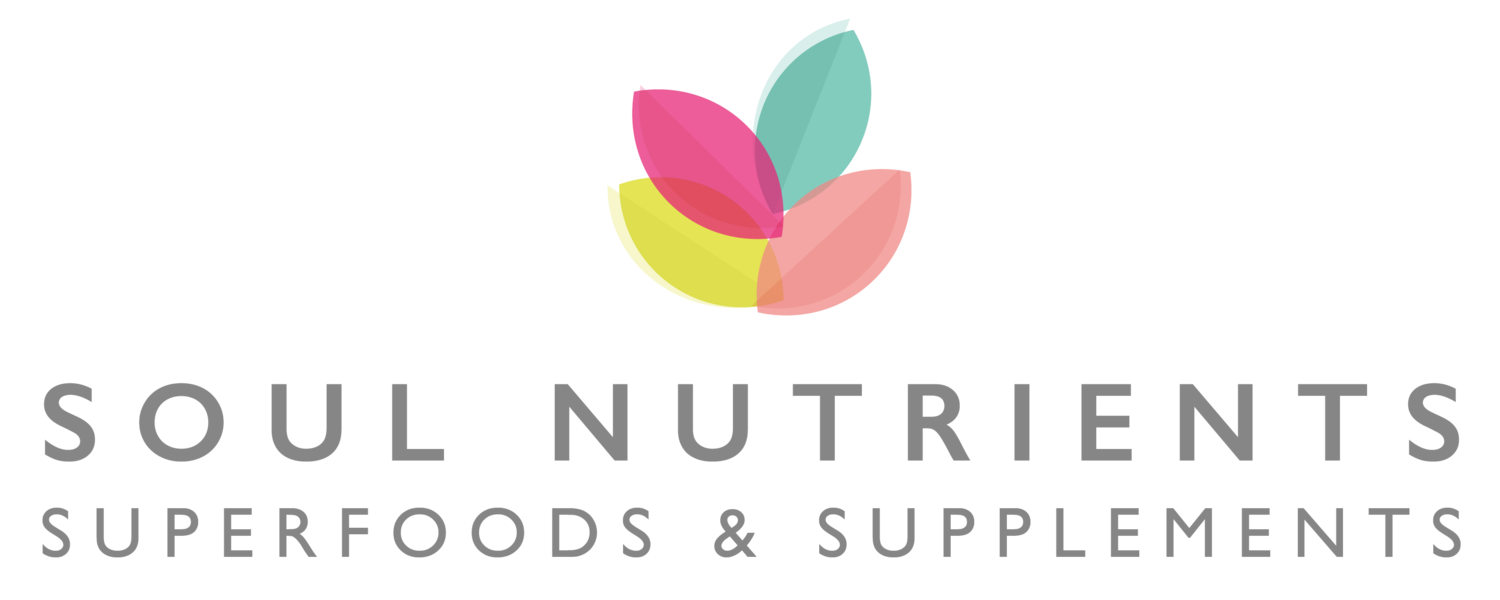Probiotics have been making big headlines again, as researchers continue to uncover more amazing connections between our gut microbiome and our physical and mental health. Prebiotics and postbiotics are also crucial to a healthy, balanced gut.
But why do we need prebiotics? What are postbiotics? Should you take pre pro or post biotic supplements? Which are the best foods for gut health and digestion? Let’s have a good look at why the gut is so important, then we’ll examine each of the “biotics” in turn so you can take control of your digestive health.
Article Contents
-
Overview of the Gut Microbiome
-
Prebiotics
-
What are Prebiotics?
-
Health Benefits of Prebiotics
-
Which Foods Contain Prebiotics?
-
Should You Take a Prebiotic Supplement?
-
Summary of Prebiotics
-
Probiotics
-
What are Probiotics?
-
Health Benefits of Probiotics
-
Which Foods Contain Probiotics?
-
Should You Take a Probiotic Supplement?
-
Summary of Probiotics
-
Postbiotics
-
What are Postbiotics?
-
Health Benefits of Postbiotics
-
Which Foods Contain Postbiotics?
-
Should You Take a Postbiotic Supplement?
-
Summary of Prebiotics
-
-
Further Reading and References
Overview of the Gut Microbiome
The human digestive system is incredible! The gut microbiome is the collection of hundreds, if not more, of different species of microorganisms (numbering in the tens of trillions!) which live in the digestive tract. It is composed of bacteria, viruses, fungi, and other microorganisms, all playing a critical part in maintaining human health.
It plays an essential role in many aspects of our health, including controlling digestion, particularly in the breakdown of complex carbohydrates and fermentation of undigested food, our immune system, metabolism, and even our mood. It’s been linked to a number of conditions, including obesity, diabetes, inflammatory bowel disease and more, and even mental health conditions such as depression and anxiety. See “Further Reading and References” at the end for some fascinating research papers on the gut-brain axis (GBA) . Researchers have called the gut our second brain, as this interesting article by the Cleveland Clinic discusses.
These bacteria can be affected by a number of aspects including antibiotic use, a diet low in fibre, fruit and vegetables, infective diarrhoea, excessive alcohol intake and smoking. When this occurs, probiotics can help to reset the balance.
So, we can see that our gut health is fundamental to our overall health, but how can we keep this complex system healthy?
Prebiotics
What Are Prebiotics?
Prebiotics are food (non-digestible carbohydrates) which promote the growth of beneficial bacteria in our gut. They’re found in fruits, vegetables, and whole grains and contribute to our overall health in a number of ways. Unlike probiotics they are not alive.
Health Benefits Of Prebiotics
-
Increases Healthy Bacteria:
-
Improved Digestion:
-
Regulate Metabolism:
-
Weight Management:
-
Boosts Immunity:
-
Improve Bone Health:
Which Foods Contain Prebiotics?
A varied diet rich in plants and fibre provides a range of prebiotics. Good food sources which are rich in prebiotics include:
-
Garlic
-
Onion
-
Leeks
-
Asparagus
-
Jerusalem artichokes
-
Dandelion greens
-
Bananas
-
Oats
-
Barley
-
Apples
-
Flaxseeds.
Should You Take A Prebiotic Supplement?
If you feel you're not getting enough prebiotics from your diet a supplement may be useful. Check out our Prebiotic Complex 180g- High Dietary Fibre Blend with viable Bacteria and Inuin (FOS). Consult your healthcare professional before making dietary changes or taking supplements.
Prebiotic Summary
In conclusion, prebiotics are non-digestible carbohydrates that act as food for the good bacteria in our gut, promoting their growth and improvement of our overall health. Incorporating prebiotics into your diet can have a positive impact on your digestion, metabolism, immune system and overall well-being.
Probiotics
What Are Probiotics?
Probiotics are live microorganisms that, when consumed in sufficient amounts, provide health benefits to the host. Found in yoghurt, kefir, and other fermented foods, as well as in dietary supplements, they can help to restore the balance of good bacteria in the gut. In turn this can improve digestion and boost the immune system. Probiotics have also been shown to have a positive impact on mental health, and may be helpful in treating certain conditions such as irritable bowel syndrome and urinary tract infections among others. A recent article in the Independent, Mindfulness boosts good gut bacteria, suggests that the mental health link may work both ways!
There are many strains of probiotics, the most common being the lactobacillus acidophilus and bifidobacterium families.
Health Benefits Of Probiotics
-
Digestion:
-
Immunity:
-
Female Health:
-
Diarrhoea:
-
Healthy Skin:
-
IBS:
-
Weight Management:
-
Colorectal Cancer Risk:
Bear in mind that probiotics are still a relatively new field of research, many findings are still inconclusive and more studies are needed to confirm their benefits.
Which Foods Contain Prebiotics?
Some probiotic rich foods include:
-
Yoghurt
-
Kefir
-
Sauerkraut
-
Kimchi
-
Kombucha
-
Tempeh
-
Miso
-
Pickles (in water and salt, not vinegar).
-
Some cheeses
Should You Take A Probiotic Supplement?
It can be challenging to consume enough probiotics in the average UK diet, so it may be worth taking a supplement. The gut microbiome is unique to each individual, much like a fingerprint, and the composition of probiotics in the gut can vary depending on factors such as diet, genetics, and overall health. What works for one person may not work for another, so you may need to do some research to find the best strains for your symptoms.
If you are pregnant, breastfeeding or have an existing health condition or a weakened immune system, you should talk to a doctor before taking any probiotic supplements.
If you’re interested in trying a probiotic supplement have a look at our ever popular Acidophilus Lactobacillus Tablets - Vegan Probiotic or our best selling Complete Probiotic Complex 90 Vegetarian Capsules (40 Billion CFU) 15 Strains of friendly gut bacteria.
Probiotics Summary
In conclusion, probiotics are live microorganisms which provide health benefits beyond basic nutrition. They help to maintain a healthy balance of microorganisms in the gut, which plays a crucial role in various physiological processes such as digestion, immunity, and metabolism. Probiotics have been shown to have a range of health benefits such as improving digestion, boosting immunity, improving mental health, and promoting skin health. They can be found in a variety of food sources and dietary supplements, and they can be consumed safely by most people.
However, it's always best to consult with a healthcare professional before starting any new supplement regimen. It's worth noting that probiotics are not a magic solution for every health issue. It's also important to maintain a healthy diet, exercise regularly, and get enough sleep.
Postbiotics
What Are Postbiotics?
Also known as metabiotics, biogenics, or simply metabolites, this term refers to the by-products or “waste” which is produced after your body digests prebiotics and probiotics. It’s far from waste as we know it though!
These compounds, produced by the gut microbiome, include short-chain fatty acids (eg. lactic acid and butyrate), amino acids, nutrients such as vitamins B and K and antimicrobial peptides which all have beneficial effects on your health. These metabolites are thought to regulate the growth of harmful bacteria, modulate inflammation, regulate metabolism, support the immune system and encourage good bacteria to flourish. Postbiotics have been studied in the context of several health conditions, including obesity, diabetes, and inflammatory bowel disease.
Health Benefits Of Probiotics
Postbiotics have been studied for their potential health benefits, and some preliminary research suggests that they may have beneficial effects on several aspects of health, including:
-
Improved Gut Health and Nutrient Absorption:
-
Metabolic Health:
-
Immune Function and Allergies:
-
Mental health:
It's important to note that research is ongoing and more is needed to confirm the specific health benefits of postbiotics and to understand the mechanisms by which they exert their effects. Some interesting links are provided at the end of this article.
Which Foods Contain Postbiotics?
Postbiotics are typically produced by the gut microbiome, so they are not found in foods in their original form. However, certain types of foods can promote the growth of beneficial bacteria in the gut and support the production of postbiotics. These include prebiotic fibres and probiotic rich foods (both listed above).
Should You Take A Postbiotic Supplement?
The best way to support gut health and postbiotics production is to consume a balanced diet with a variety of fruits, vegetables, whole grains, legumes and fermented foods. This isn’t always possible however, and increasing postbiotics is the overall aim when trying to improve gut health, so a supplement is a possible option. Postbiotics are considered safe and thought to be tolerated well. Additionally, they are shelf stable as they contain no live bacteria. Consult your healthcare professional before making any dietary changes or taking any supplements. Soul Nutrients have developed a brand new postbiotic supplement, available for pre-order now. Vegan Postbiotic Complex with Tributyrin
Summary Of Postbiotics
Postbiotics are the valuable end result of consuming prebiotics and probiotics. Some preclinical and observational studies have shown promising results in terms of their benefits for gut health, metabolic health, immune function, and mental health. However, more clinical trials are needed to confirm these findings and to understand the long-term effects of postbiotics. It’s an incredibly exciting new area of research with a lot of promise!
Further Reading And References
Carabotti M, Scirocco A, Maselli MA, Severi C. The gut-brain axis: interactions between enteric microbiota, central and enteric nervous systems. Ann Gastroenterol. 2015 Apr-Jun;28(2):203-209. PMID: 25830558; PMCID: PMC4367209.
Whisner CM, Castillo LF. Prebiotics, Bone and Mineral Metabolism. Calcif Tissue Int. 2018 Apr;102(4):443-479. doi: 10.1007/s00223-017-0339-3. Epub 2017 Oct 27. PMID: 29079996; PMCID: PMC5851694.
Slavin, J. Fiber and Prebiotics: Mechanisms and Health Benefits. Nutrients 2013, 5, 1417-1435.
Borchers AT, Selmi C, Meyers FJ, Keen CL, Gershwin ME. Probiotics and immunity. J Gastroenterol. 2009;44(1):26-46. doi: 10.1007/s00535-008-2296-0. Epub 2009 Jan 22. PMID: 19159071.
Ambalam P, Raman M, Purama RK, Doble M. Probiotics, prebiotics and colorectal cancer prevention. Best Pract Res Clin Gastroenterol. 2016 Feb;30(1):119-31. doi: 10.1016/j.bpg.2016.02.009. Epub 2016 Feb 19. PMID: 27048903.
Park, M.; Joung, M.; Park, J.-H.; Ha, S.K.; Park, H.-Y. Role of Postbiotics in Diet-Induced Metabolic Disorders. Nutrients 2022, 14, 3701.
DISCLAIMER: THIS WEBSITE DOES NOT PROVIDE MEDICAL ADVICE
The information contained on this website, including but not limited to, text, graphics, images and other material are for informational purposes only. No material on this site is intended to be a substitute for professional medical advice, diagnosis or treatment. Always seek the advice of your GP or other qualified healthcare professional with any questions you may have regarding any medical condition or treatment and before undertaking a new health care regimen. Never disregard professional medical advice or delay in seeking it because of something you have read on this website.

